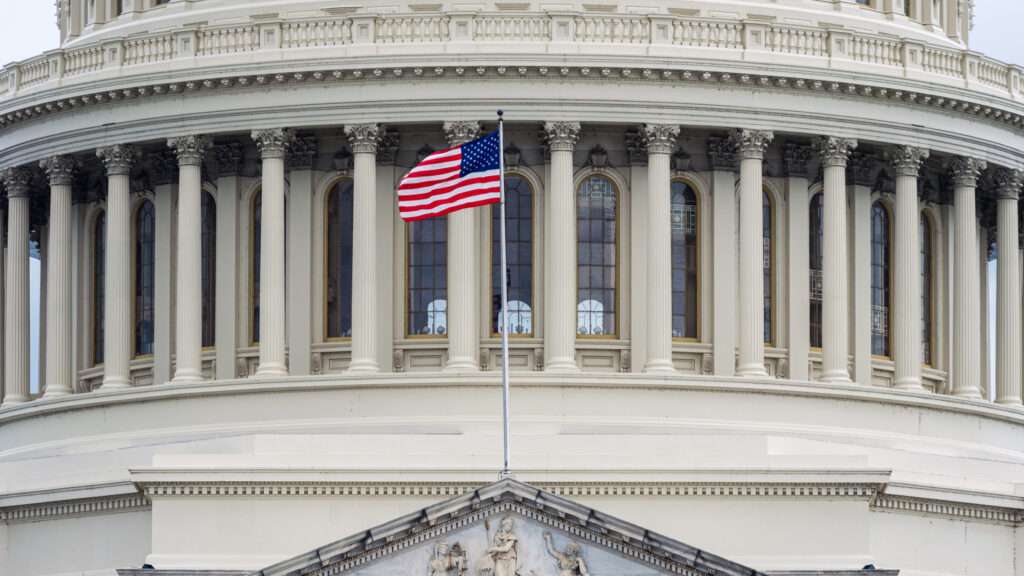WASHINGTON — The Coalition for a Prosperous America (CPA) today released a statement following a markup by the House Ways and Means Committee of trade legislation, including bills on the de minimis loophole and the Generalized System of Preferences (GSP) program. De minimis is a loophole in federal law known as Section 321, which allows foreign vendors to ship packages directly to U.S. consumers without facing any taxes, fees, or meaningful chance of inspection, if they merely label their shipment as being valued under $800 in their country.
CPA strongly supports repealing the de minimis loophole entirely, and any steps that would meaningfully reduce the volume of de minimis shipments that are overwhelming our ports entirely, and any steps that would meaningfully reduce the volume of de minimis shipments. Earlier this year, CPA joined 24 other organizations to launch the Coalition to Close the De Minimis Loophole. The Coalition represents thousands of voices, from the families of victims of fentanyl fatalities and nonprofit and nonpartisan organizations to labor unions, domestic law enforcement associations, domestic manufacturers, and business associations.
“At a time when China continues its attempts to decimate American manufacturers and workers through predatory trade activity, Chairman Jason Smith’s leadership on trade issues has been a welcome improvement over previous chairs that have rubber stamped failed free trade programs,” said Michael Stumo, CEO of CPA. “We appreciate the committee’s action to prohibit Chinese imports subject to Section 301 tariffs from exploiting the de minimis loophole. While this is a good first step, there is still more work that needs to be done to address the sheer volume—nearly 4 million packages per day—of illicit, counterfeit, and deadly narcotics like fentanyl that are coming in through the de minimis loophole from China.”
CPA’s domestic manufacturing members oppose the renewal of the failed GSP program. The idea that the United States can help developing countries by importing more of their goods has been proven false. Efforts like the GSP program have failed to boost living standards overseas. Instead, they’ve benefited multinational firms seeking the lowest-wage labor—and enriched the corrupt oligarchs that still control too much of the developing world. Because this aid has proved fruitless, the GSP program has not been renewed since 2020. At a time of existential budget deficits and record trade deficits, prioritizing importers above American workers and producers is bad policy and bad politics.
“At a time when our trade policy should be rewarding those who produce in our country, the Committee’s renewal of the GSP program is a mistake,” continued Stumo. “Our CPA members, who produce goods in the USA, are clear that the days of cutting tariffs for importers should be over and retroactively rebating billions of dollars to importers is a reward for foreign manufacturers and workers rather than American companies producing here. GSP is a failed program that should be abolished. It has never helped the 119 countries build a middle class, and this new bill makes it difficult for the president to remove a country from the program for labor abuses. Shockingly, for the first time this bill gives foreign countries the right to sue the U.S. for removing them from the GSP program.”
RELATED:
- February 2024: House GOP Trade Chair Expects To Legislate Billions In Tariff Refunds For Importers In Coming Weeks
- December 2023: CPA, Law Enforcement, and Drug Advocacy Groups Urge Congress to Close De Minimis Loophole to Address Fentanyl Crisis
- October 2023: CPA Testifies at Homeland Security Subcommittee Hearing on De Minimis Loophole, UFLPA Enforcement
- September 2023: Tariff Relief Hasn’t Helped America’s Poorest Trading Partners
###












